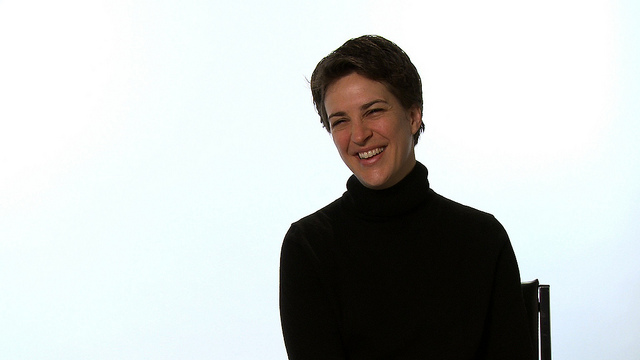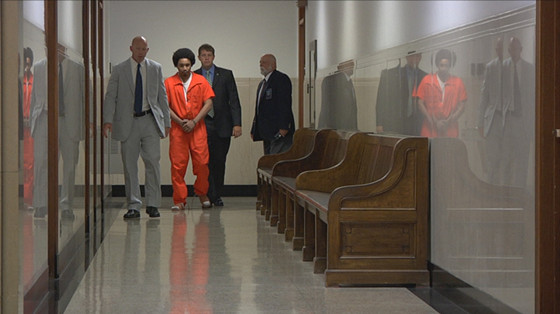8. Miss Representation (2011)
The title of this documentary is a play on words that represents both a title and how women are underrepresented and misrepresented in this country. Written, directed, and produced by Jennifer Siebel Newsom, “Miss Representation” explores how the mainstream media contributes to the underrepresentation of women in influential positions by circulating limited and often disparaging portrayals of women. It first premiered in the documentary competition at the 2011 Sundance Film Festival.
The film interweaves stories from teenage girls with provocative interviews from some of the most important and powerful women in America to give insight to the culture of media and its messages. The film’s motto, “You can’t be what you can’t see,” underscores an implicit message that young women need and want positive role models, and that the media has thus far neglected its unique opportunity to provide them.
“Miss Representation” was selected to show at more than 10 film festivals, including the Palo Alto International Film Festival and the Atlanta Film Festival. The Oprah Winfrey Network acquired broadcast rights for the film following its premiere, and a call-to-action campaign grew out of the film. It included a Twitter campaign and a crowd-sourced list of media contacts that represent women and girls fairly, and a virtual internship program to recruit representatives.
A mission organization also came out of the film. The Representation Project is a movement that uses film and media content to expose injustices created by gender stereotypes, and to shift people’s consciousness towards change. Interactive campaigns, strategic partnerships and education initiatives inspire individuals and communities to challenge the status quo and ultimately transform culture so everyone, regardless of gender, race, class, age, or circumstance can fulfill their potential.
9. Jesus Camp (2006)
This is one of the hardest films I have ever watched. The indoctrination of America’s children gets an often disturbing examination in this film, which sparked so much controversy upon release that the camp where the film was shot was shut down.
This 2006 documentary, directed by Rachel Grady and Heidi Ewing, focused on a charismatic Christian summer camp, where children spend their summers being taught that they have “prophetic gifts” and can “take back America for Christ”. According to the film’s distributor, “Jesus Camp” does not come with a prepackaged view and it attempts to be honest and impartial.
“Jesus Camp” debuted at the 2006 Tribeca Film Festival, and was sold by A&E Indie Films to Magnolia Pictures. It was nominated for Best Documentary Feature at the 79th Academy Awards. The film follows the “Kids On Fire School of Ministry”, a charismatic Christian summer camp located just outside Devils Lake, North Dakota, run by Becky Fischer and her ministry, “Kids in Ministry International”. It specifically follows three children and their journey through their camp experience. Fischer expresses the need for children to purify themselves in order to become part of the “Army of God”. Other religions are referred to as “the enemy”.
“Jesus Camp” is scary stuff, especially considering the ages of the children at the camp. Religious freedom and religious rights have been huge topics in this country and will continue to be for many years to come. No matter your viewpoint of Christian fundamentalism, you can at least see one perspective through this film.
10. Fed Up (2014)
It’s no secret that the United States, and the world for that matter, is getting larger, or at least the size of our pants are. “Fed Up”, a 2014 Sundance product, focuses on causes of obesity in the US, presenting evidence showing that the large quantities of sugar in processed foods are an overlooked root of the problem, and points to the moneyed lobbying power of “Big Sugar” in blocking attempts to enact policies to address the issue.
Written and directed by Stephanie Soechtig, the film uses a combination of statistics, experts in the field of global health, nutrition, and government, alongside multiple cases of real teenagers in this country who are obese.
“Fed Up” shows how the first dietary guidelines, issued more than 30 years ago, overlooked the role of dietary sugar in increasing obesity and diabetes, among other diseases, especially in children. As the relationship between the high-sugar diet and poor health has emerged, entrenched sugar industry interests with almost unlimited financial lobbying resources have beaten back attempts by parents, schools, states, and in Congress to provide a healthier diet for children.
The film concludes with a list of 20 companies, politicians and industry groups who refused to talk to the filmmakers. I believe narrator and producer Katie Couric said it best: “Are you fed up?”
11. Food Inc. (2008)
“Food Inc.” is a 2008 documentary that examines corporate farming in the United States. The film concludes that agribusiness produces food that is unhealthy, in a way that is environmentally harmful and abusive to both animals and employees.
Directed by Emmy-winning director Robert Kenner and narrated by Michael Pollan and Eric Schlosser, “Food Inc.” focuses on the issues surrounding the production of meat, which Kenner depicts as making us sicker, and the production itself as polluting and harming the environment.
The film also explores the industrial production of vegetables and grains, labeling them as environmentally unstable, and it also covers food economic and legal power. This third segment (economic and legal power) explores food labeling regulations of the major food companies, the profits of which are based on supplying cheap but contaminated food, the heavy use of petroleum-based chemicals (largely pesticides and fertilizers), and the promotion of unhealthy food consumption habits by the American public.
The producers invited on-screen rebuttals from Monsanto Company, Tyson Foods, Smithfield Foods, Perdue Farms, and other companies, but all declined the invitation. Chipotle responded to claims made against them in the film by offering free screenings of it at various locations nationwide and stating that it does things differently, which it hopes customers will appreciate after seeing “Food, Inc.”
Chipotle, along with many other brands and stores, have joined the health-based movement of organic foods. Now that we see organic and vegetarian and vegan food everywhere, learning about how food is produced for the nation and what control the government has on that production, is now more important than ever.
12. The Thin Blue Line (1988)
Why would I include a documentary from 1988 in this list? Well, because it’s relevant. As a modern society, we must learn from our history and make changes to what went wrong. “The Thin Blue Line”, a film directed by Errol Morris, shares the story of Randall Dale Adams, a man convicted and sentenced to life in prison for a murder he did not commit.
While investigating a prosecution psychiatrist named Dr. James Grigson, Morris became interested in the case of Randall Dale Adams, who was sentenced to life in prison for murder. In November 1976, a Dallas police officer was shot twice and killed during a traffic stop. On Saturday, November 27, Adams started work at his new job, but no one turned up because it was a weekend.
On his way home, his car ran out of fuel. David Ray Harris, who had just turned 16, came by in a car he had stolen from his neighbor in Vidor, Texas before driving to Dallas with his father’s pistol and a shotgun. Harris offered Adams a ride. Robert W. Wood, a Dallas police officer, pulled over the stolen car and was shot twice, once in the arm and the second in the chest. Harris accused Adams of the murder. Adams was arrested and sentenced to life in prison.
The film presents a series of interviews with key witnesses, the judge presiding over the case, and several attorneys involved in the case and recreation of the shooting. In 1989, a year after the release of the film, Adams’ conviction was overturned by the Texas Court of Criminal Appeals and he was released from his life sentence, which was a death sentence, but that was overturned by the US Supreme Court.
The justice system of this country has been under investigation for a number of reasons. We can use this case as an example of what to do in the event we think the justice system got it wrong.
13. Chasing Ice (2012)
“Chasing Ice” is an incredibly important documentary, especially for those blissfully unaware of the consequences of global warming. Director Jeff Orlowski followed the efforts of National Geographic nature photographer James Balog and his Extreme Ice Survey to publicize the effects of global warming. James Balog created a multi-year record of how global warming has affected glaciers and the effect that it could have on the world in general.
The film premiered at the 2012 Sundance Film Festival where it received positive critical reviews. It also received an Oscar nomination for Best Original Song for the song “Before My Time”, written by J. Ralph and performed by Scarlett Johansson and Joshua Bell. It’s a hauntingly shot film, which shifts between beauty and terror. It should convince any skeptics.
James Balog and his colleagues tackle an issue that is on the forefront of what is happening in the world. There are people who are calling this bogus science, but as you watch a chunk of ice the size of lower Manhattan crumble off into the ocean, you know something unusual is going on. The team’s time-lapse footage from their months of watching should convince someone.
14. The House I Live In (2012)
Directed by Eugene Jarecki, “The House I Live In” is a 2012 documentary that explores America’s “War on Drugs”. It is often enraging and an enthralling look, but a necessary one nonetheless. Jarecki looked at addicts who were treated as violent criminals. Their families were left behind and their former hangouts still stinging with drug activity. It’s a shocking film that is sometimes hard to watch. The shock lies in shining the light on the system riddled with problems and major defects.
A wide range of participants provided an insider look at the criminal justice itself and the experience of being convicted of a drug-related offense. These participants included Charles Ogletree (Jesse Climenko Professor of Law at Harvard Law School, and a former academic advisor to Barack and Michelle Obama), David Simon (creator of “The Wire” on HBO) and Maurice Haltiwanger (sentenced to 20 years for crack cocaine distribution).
With the “War on Drugs” ever-present in this country, it’s important to get both sides of the story. Through Jarecki’s film, we can see the system through an inmate’s point of view and how the United States justice system is fighting this war.
15. Waiting for Superman (2010)
Davis Guggenheim, the man behind “An Inconvenient Truth”, the Oscar winning documentary that features Former US Vice President Al Gore and his international slideshow on global warming, brings a critique of the American public education system. Throughout the documentary, several aspects of the American public school system are examined.
Examples include how easily a teacher can receive tenure, and how hard it can be to fire a tenured educator. Teaching standards are called into question as there is often conflicting bureaucracy between teaching expectations at the school, state, or federal level. The film also examines teacher’s unions.
“Waiting for Superman” received both praise and negative criticism from commenters, reformers and educators. There have been questions of inaccuracies and some of the information has been labeled as half-truths and distortions, particularly by author and academic Rick Ayers, who is a vocal critic of the film.
A teacher-backed group called the Grassroots Education Movement also produced a rebuttal film titled “The Inconvenient Truth Behind Waiting for Superman”. This film criticizes some public figures featured in “Waiting for Superman” and proposes different policies to improve education in the United States.
Even though there are validities behind these critiques, “Waiting for Superman” is a quality exploration of the pressure of the American educational system, and what we can do about it. The children being taught through this education system are the future of the United States, and understanding how we teach them is a key aspect to understanding the world we live in.







